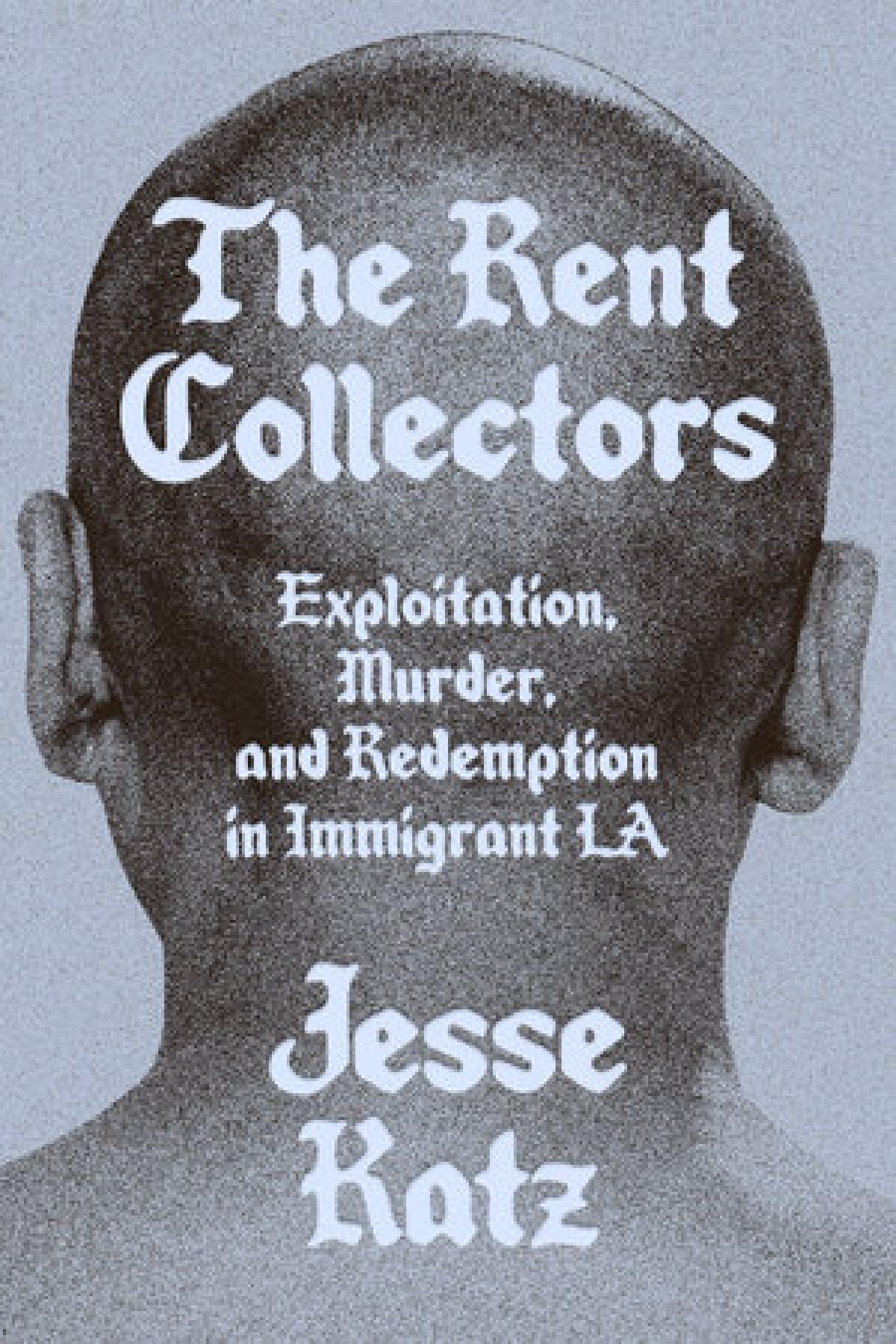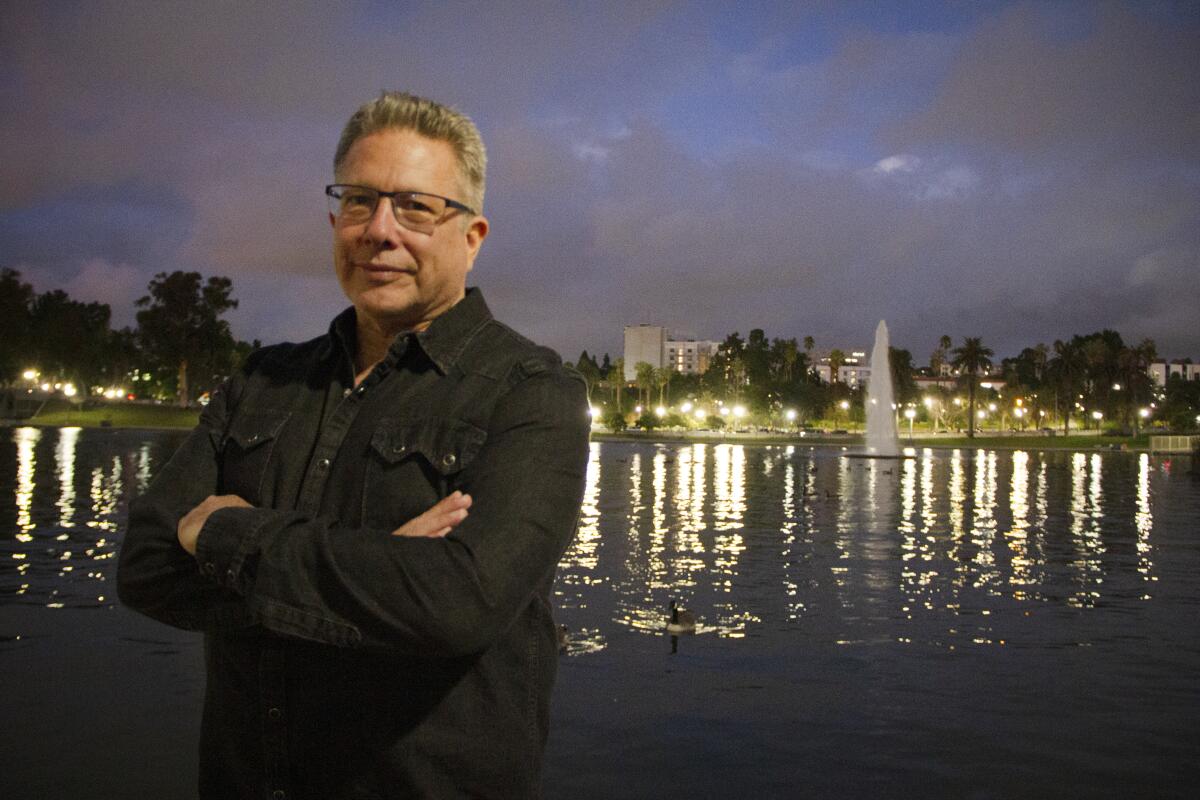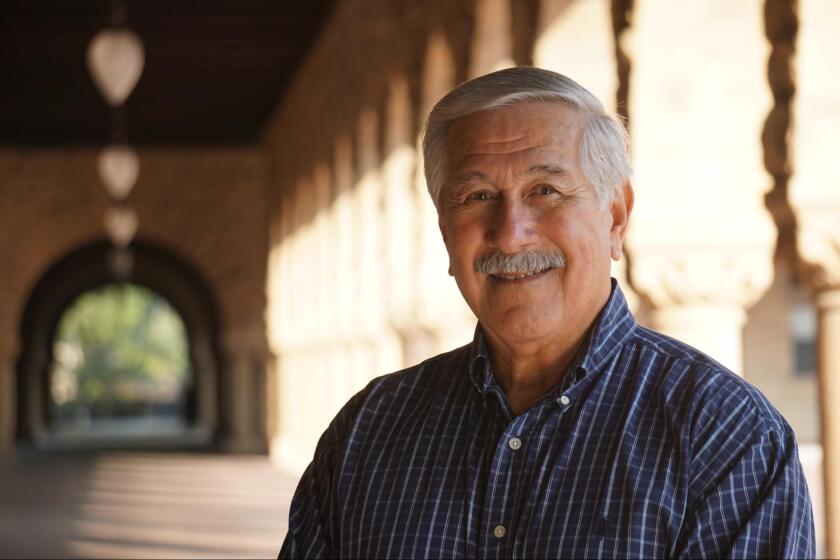Can Angelenos ever make sense of the gang killing of a baby?

- Share via
Book Review
The Rent Collectors: Exploitation, Murder, and Redemption in Immigrant LA
By Jesse Katz
Astra House: 320 pages, $28
If you buy books linked on our site, The Times may earn a commission from Bookshop.org, whose fees support independent bookstores.
The crime shook Los Angeles in 2007: A gang member, Giovanni Macedo, approached street vendor Francisco Clemente and fired five times. Clemente was gravely wounded, and one of the bullets intended for him struck 23-day-old Luis Angel, killing the infant. In “The Rent Collectors,” Jesse Katz examines the events of that day to ask whether a killer like Macedo can be redeemed.

Readers expecting the sort of true-crime story that treats murder as a sui generis individual act will find a much different narrative here. Instead, Katz has constructed an ethnography of the crime, locating it within the intricate lacework of history, geography, policing and politics that the crime was knotted to.

Katz, who spent 24 years covering stories for both the Los Angeles Times and Los Angeles magazine, brings his formidable skills to mapping the territory of Macedo’s crime. It happened near MacArthur Park, the large green space in L.A.’s Westlake district, which by the 1980s had become a crowded neighborhood of Central American refugees. What Los Angeles offered most of them, however, was not security and stability, but a fugitive life for anyone who was in the U.S. without legal status. “No other place in Los Angeles thrummed with its subversive energy or labored under the weight of so much trauma,” Katz writes.
With ‘Compton in My Soul,’ Albert M. Camarillo shows his Chicano identity is inseparable from his scholarly agenda: expanding the narrative of U.S. history to include folks like him.
Cut off from legal employment, they set up sidewalk stalls to sell just about everything — single cigarettes, diapers, street food, crafts and pirated forms of entertainment. “For the migrant, it constituted a ‘cold bargain’: toil at the margins, stay out of trouble, swallow your humiliations, forgo the ability to vote or serve on a jury or collect unemployment or ever feel secure in your skin, and if you’re lucky, America might just leave you in limbo.”
But Los Angeles, despite its self-image as a liberal city, punished peddlers. While other cities celebrated urban markets for their cultural richness and commercial opportunities, Katz explains, Los Angeles “has long viewed peddling as a nuisance. Code for foreignness and civic disorder.” It was part of the criminalization of poverty that continues today, as in last month’s Supreme Court ruling on punishing people for sleeping in public. The city’s bureaucracy and police force were put in service of removing the poor from public space.
In ‘The Power of Chinatown,’ author Laureen D. Hom explores the political power and intimate stories of the historic enclave, where her elders lived.
The Columbia Lil Cycos stepped into the gap. A street gang that made money off the drug trade, it had branched out to become a sophisticated protection racket that charged a fee to anyone earning money in this underground economy — be they sex workers or merchants. For vendors, who already paid city fines for illegal vending, it was just another expense.
But these costs strained a population already under tremendous pressure. Without access to health services or social resources that could help those immigrants traumatized in their home countries, more trauma was passed along to younger children by their parents’ coping mechanisms — alcoholism, domestic abuse and the types of absent parenting that take place when an adult must hold down multiple low-wage jobs to support the family.
Some of those factors were present in the teenage Macedo’s life. The immature brain of an adolescent looking for an aspirational masculinity he could emulate made him keep coming back despite warnings from other gang members that this wasn’t the life for him.
The vendor he shot, Clemente, was emblematic of a different struggle in the community. He already owned a car-repair business but needed more cash, so he began moonlighting as a vendor. He took two recent arrivals, Jessica Guzman and Daniela Garcia, under his wing to help him. Clemente, an undocumented former slum kid from Mexico City, refused when the gang demanded protection payments, so it sent Macedo to kill Clemente as an example. Garcia had brought the newborn Angel Luis to work with her because she had no other options.
Katz has constructed a riveting and masterful urban narrative. At its center is the enormous tragedy of the killing of an infant, a heinous crime for which Katz holds its perpetrator fully responsible. The state did, too: Macedo is serving a long prison sentence.
But in truth the culpability for the crime is like a blast wave. It extends back into history and widely through society today. None of us are outside its zone. U.S. policies in Central America, and reactions to them, created nightmares from which civilians fled in search of sanctuary and a better future. Here in the U.S. they instead found purgatory, their existence criminalized by a federal government that refused to take responsibility for the consequences of our foreign policy. Los Angeles, ever concerned with its own reputation and aesthetics, criminalized them further by punishing street merchants. Gangs seized on every vulnerability in this population and created new fears.
“The Rent Collectors” sets out to understand an evil act and asks whether atonement and redemption are possible for the person who did it. It finds a web of meaning in which all of us are suspended, implying that many other crimes could be understood in such a holistic way if we took the time. As much as is possible after such a senseless tragedy, Katz makes some sense out of that September day.
Lorraine Berry is a writer and critic in Eugene, Ore. @BerryFLW
More to Read
A cure for the common opinion
Get thought-provoking perspectives with our weekly newsletter.
You may occasionally receive promotional content from the Los Angeles Times.








